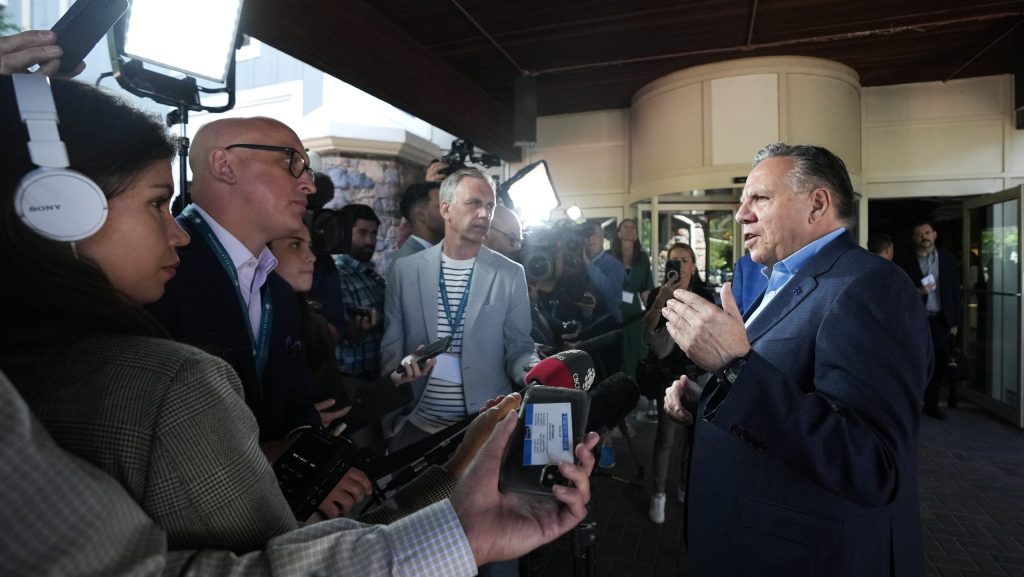Unsurprisingly, the issue of the tariff war came to the forefront during the first day of the Council of the Federation in Ontario.
François Legault still hopes the federal government will reach an agreement with Donald Trump by Aug. 1 to provide predictability to the country’s economy, even if it means that some tariffs remain in place. However, Ottawa must not compromise on “sensitive sectors” for Quebec, the premier said.
“Obviously, our hope is that there will be no tariffs. But if Mr. Carney ever decides to sign an agreement that includes certain tariffs, or certain adjustments, it must not be about supply management to protect our dairy producers. It must also not be about culture and language,” François Legault stated Monday upon his arrival at the meeting of the country’s premiers.
This meeting comes nearly two weeks after Trump threatened to impose new 35 per cent tariffs on Canadian imports as of Aug. 1. If they were to take effect, these tariffs would not apply to goods that comply with the Canada-United States-Mexico Agreement (CUSMA).
The premiers will also meet with Prime Minister Mark Carney on Tuesday to take stock of trade negotiations with the United States. Last week, Carney suggested he had little hope of a tariff-free agreement being signed with the Americans.
The tariff war is therefore likely to occupy a large part of the discussions between political leaders this week.
Legault also intends to take advantage of the summer meeting of the Council of the Federation to discuss the issue of defence investments with his provincial counterparts and Carney.
Carney has already announced an additional $9 billion in military spending this year. And he doesn’t intend to stop there, since Canada has committed to devoting five per cent of its GDP—the new NATO target—to defence by 2035. To achieve this goal, the federal government will have to spend nearly $150 billion per year in 10 years.
Legault wants to ensure Quebec gets its fair share of contracts related to military spending, particularly in sectors such as aeronautics, ships, critical minerals, and artificial intelligence.
“We have an opportunity to replace jobs with jobs in the defence sector. We have huge companies like Bombardier, like the Davie shipyard, which can create tens of thousands of defence jobs. So it’s important to create these jobs in Canada,” explained the Quebec premier.
When it comes to defence, Legault isn’t just targeting Canada. In recent months, he has conducted two economic missions to Europe, to Germany and France, notably to promote Quebec’s comparative advantages in this area.
Faced with the United States’ disengagement, the European Union plans to invest €800 billion (CAD $1,276 billion) to rearm.
The increase in federal military spending is aimed primarily at stimulating the Canadian economy and reducing Canada’s dependence on the United States in the context of a tariff war.
During their meeting this week, the premiers are also expected to discuss energy security, national sovereignty and security, domestic and international trade, labor mobility, health, and immigration.
The Council of the Federation is meeting in Huntsville, in the Muskoka region of Ontario, until Wednesday.
–This report by La Presse Canadienne was translated by CityNews




